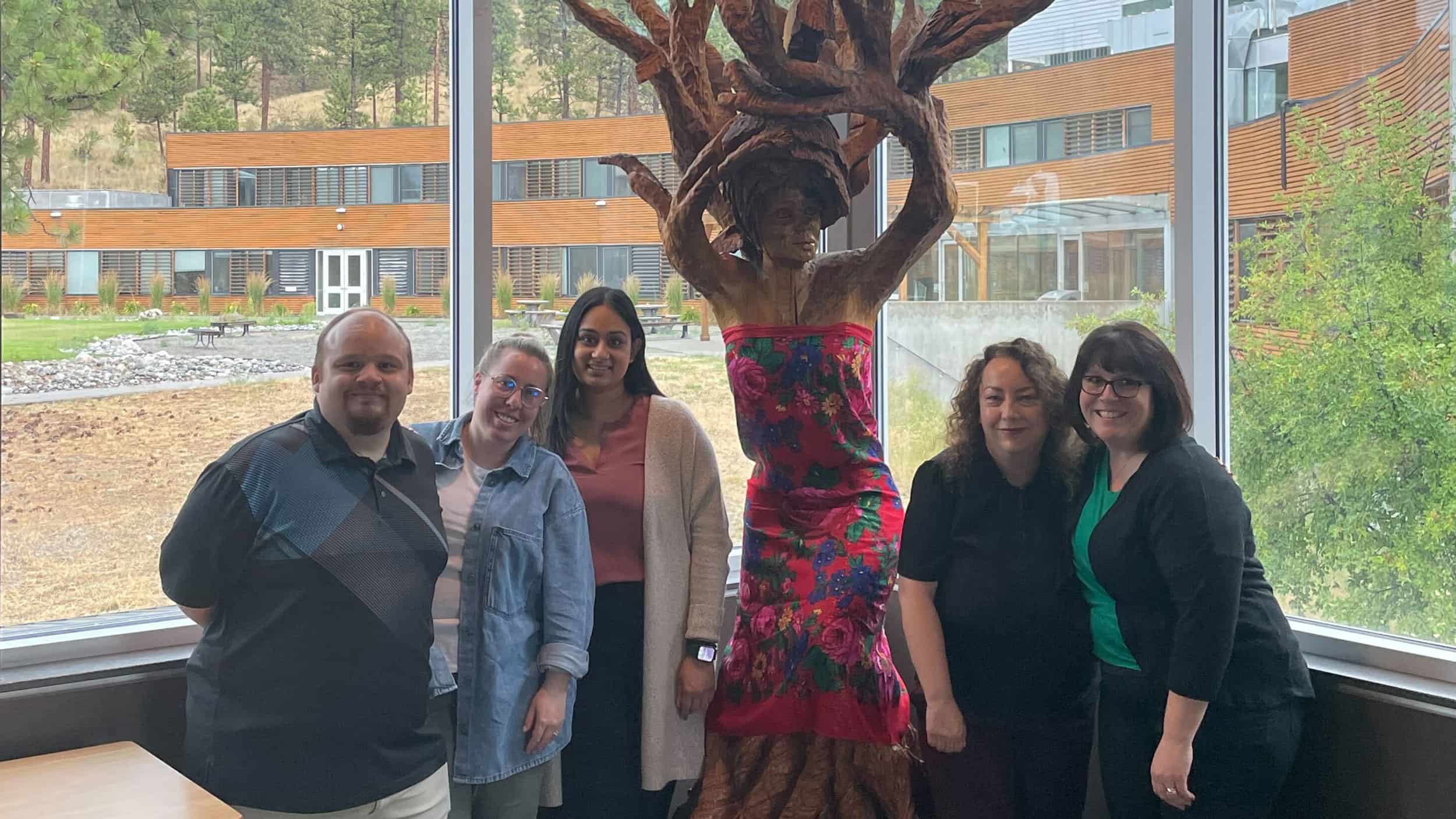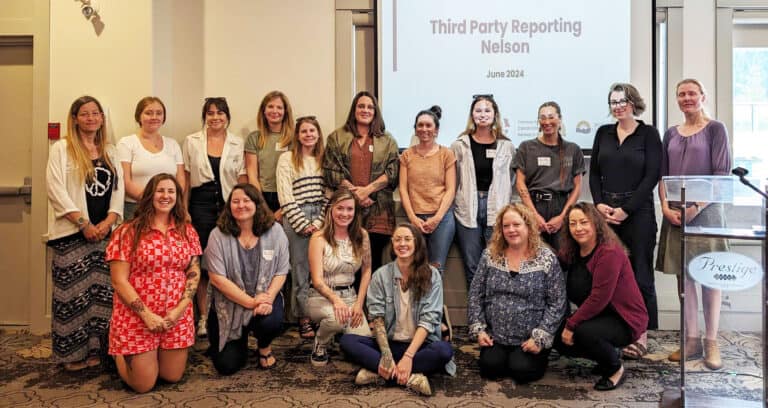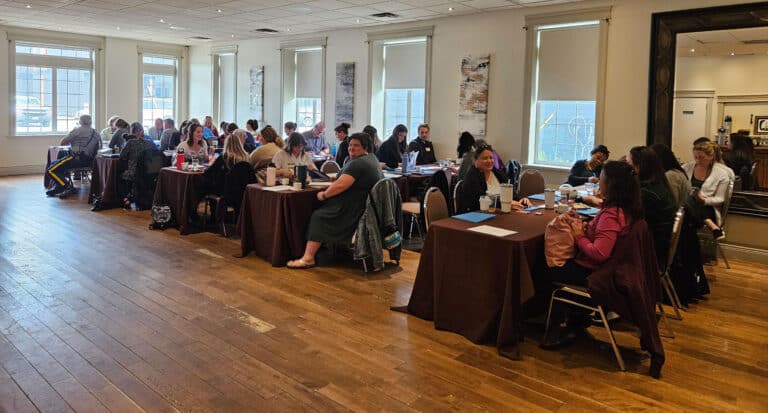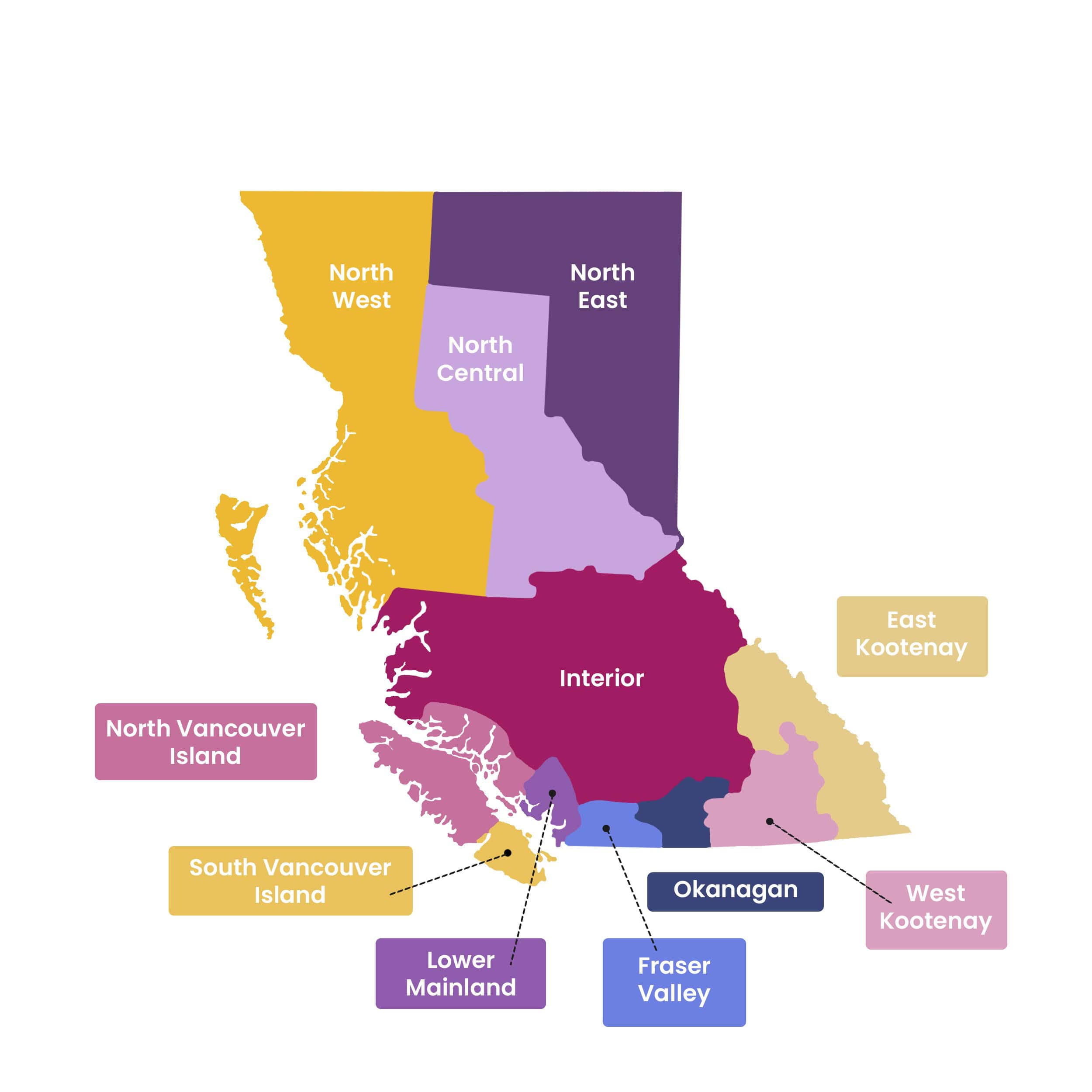This summer the CCSS team had the opportunity to deliver training to communities in Nelson, Prince George and Merritt.
Responding to Disclosures and Third Party Reporting (TPR) Training
EVA BC worked with Nelson CARES Society and Nelson Community Services to coordinate a two-day training in June for Nelson and surrounding communities such as Kaslo, Trail, and Salmo.
Participants from anti-violence organizations, post-secondary institutions, school districts, RCMP, the Nelson Police Department, Interior Health, Indigenous organizations, and other social service organizations attended the training.
“Responding to Disclosures” was the focus on the first day of training with a course that covered the social context of sexual violence, impacts of sexual violence and trauma and survivor support strategies.
On day two, participants learned about the history of TPR, the development of the provincial TPR protocol, reporting options, working with youth, the TPR process, and community TPR protocol development.
Participants shared:
“I felt that the training was beneficial for individuals working closely with victims of sexual assault.”
“Excellent information – learned a lot about processes and found it incredibly helpful to get connected with local community supports.”
“Thank you for distinguishing the importance of language regarding disclosure – I found it very helpful.”
Community Coordination and Interagency Case Assessment Team (ICAT) training
CCSS was invited to Prince George in June and Merritt in July to facilitate training that focused on community coordination and ICATs to enhance the local response to intimate partner violence (IPV).
The Prince George Sexual Assault Centre, Prince George and District Elizabeth Fry Society, and Prince George RCMP Police-Based Victim Services (PBVS) worked with CCSS to coordinate a two-day training session for service providers including those from surrounding communities including Vanderhoof and Quesnel. Participants from a diverse group of agencies attended that included: the Ministry of Children and Family Development, Prince George and Vanderhoof RCMP, Community Corrections, Northern Health, and Phoenix Transition Society.
In Merritt, Nicola Family Therapy, Merritt RCMP PBVS, and Nicola Valley Restorative Justice Program collaborated with CCSS to provide training to local anti-violence agencies, system partners and Indigenous communities.
The first day of the two-training trainings focused on building and sustaining local coordination initiatives to address IPV. The second day covered the ICAT collaborative process for responding to highest risk cases of IPV and coordinated risk management. The training sessions also provided a great opportunity for networking and increasing awareness of available programs and resources for survivors.
Kiran Toor, CCSS Policy Analyst, one of the facilitators for the Prince George and Merritt training sessions shared: “It was evident both communities are invested in supporting survivors and providing services in support of decreasing IPV in their respective communities.”
Participants from both training sessions reported positive experiences:
“Excellent information – learned a lot about processes and found it incredibly helpful to get connected with local community supports.”
“The training has helped my appreciation for a coordinated effort in addressing the barriers faced by IPV victims. I also learnt about the problems VAWIR faced earlier and now know how they can be addressed.”
“The training was very informative. Lots of useful information on how to share information, informed consent, risk factors, and how to make referral for ICAT, how to support an individual in the community through ICAT. Thank you for sharing the information.”
To request community coordination training, contact the CCSS team at ccss@endingviolence.org.




